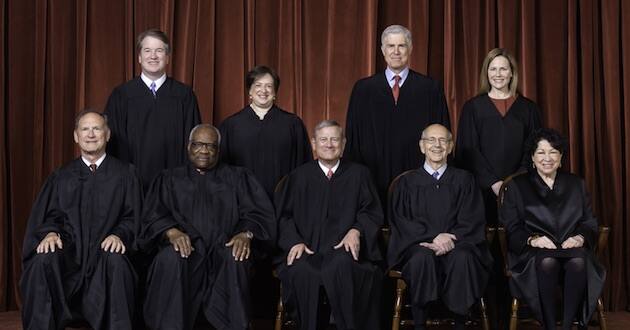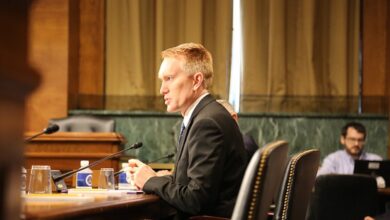Supreme Court overturns Roe v. Wade in landmark ruling

The Supreme Court has overturned Roe v. Wade, ruling 5-4 “returning authority to the people and their representatives,” saying the states and not the federal government, have the right to regulate and limit abortion. The ruling overturns Roe but also Casey by 6-3.
“Roe was egregiously wrong from the start,” Justice Samuel Alito wrote in his majority opinion. “Its reasoning was exceptionally weak, and the decision has had damaging consequences. And far from bringing about a national settlement of the abortion issue, Roe and Casey have enflamed debate and deepened division.”
Pro-life leaders are praising former President Trump, who is solely responsible for the court makeup which made the votes possible. Trump appointed three justices who all voted in favor of overturning Roe.
READ THE COURT’S DECISION HERE
The case revolved around a Mississippi law enacted in 2018, that prohibits abortion after 15 weeks’ gestational age, with exceptions for medical emergencies and fetal abnormality. By being upheld, it opens the door for other states to pass similar laws. In a 17-word order issued by the Justices when they agreed to take the case, they said they would limit the scope of the case to one question: Are all laws restricting pre-viability abortions unconstitutional?
The question struck at the heart of the court’s controversial abortion precedents including Roe, which legalized abortion based on a “right to privacy.” Lower courts overturned the Mississippi law as unconstitutional, saying it violates the 1973 Roe v. Wade decision legalizing abortion nationwide.
HELP: Metro Voice faithfully reported the pro-life movement for 33 years. Donate today so we can cover what’s next.
Alito, in the final opinion issued Friday, wrote that Roe and Planned Parenthood v. Casey, the 1992 decision that reaffirmed the right to abortion, were wrong the day they were decided and must be overturned.
“We hold that Roe and Casey must be overruled. The Constitution makes no reference to abortion, and no such right is implicitly protected by any constitutional provision,” Alito wrote.
Authority to regulate abortion rests with the political branches, not the courts, Alito wrote.
Joining Alito were Justices Clarence Thomas, Neil Gorsuch, Brett Kavanaugh and Amy Coney Barrett. The latter three justices are Trump appointees. Thomas first voted to overrule Roe 30 years ago.
Chief Justice John Roberts would have stopped short of ending the abortion right, noting that he would have upheld the Mississippi law at the heart of the case, a ban on abortion after 15 weeks, and said no more.
Justices Stephen Breyer, Sonia Sotomayor and Elena Kagan — the diminished liberal wing of the court — were in dissent.
“With sorrow — for this Court, but more, for the many millions of American women who have today lost a fundamental constitutional protection — we dissent,” they wrote.
The advances in science over the last 50 years have made the time of survivability earlier and earlier with states, like Mississippi, lowering the legal gestational age at which a child could be aborted to reflect that fact.
The court’s opinion also specifically states the ruling only portends to abortion and not contraception. Democrat leaders, pro-abortion activists, and national media outlets had attempted to tie in contraception and even in-vitro fertilization to the debate in an effort to turn the public against the court overturning Roe.
With the decision’s release, security has again been tightened around the Justices coming just weeks after an assassination attempt of conservative Justice Brett Kavanaugh. The group Ruth Sent Us continues to organize protests outside the homes of justices considered pro-life, even though federal law prohibits such intimidation. The Biden Justice department has chosen not to enforce the law while it belatedly increased security.
Since the illegal leak of a draft opinion that implied the court would overturn Roe, there have been at least 26 firebombings and serious acts of vandalism and violence against pro-life women’s clinics around the nation. With today’s ruling, thousands of clinics and other ministries that assist women in crisis pregnancies have increased security. Pro-abortion activists have repeatedly said they would make such organizations “pay” for the Court’s ruling.
By finding the law constitutional, the court did not outlaw abortion, as many media outlets and pro-abortion activists have claimed. Rather, it returned to the states the power to regulate it.
–Dwight Widaman | Metro Voice






